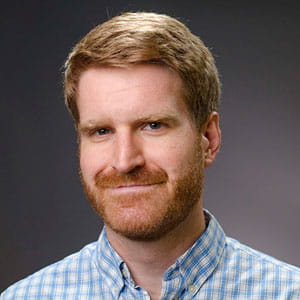International Fellowship Proves Invaluable for One Graduate Student

Josa Hanzlik spends her days looking at images of human tibia bones, or reading articles about bone ingrowth and orthopedic implants.
Those are things she could do in Philadelphia. So why is she doing them in the city of Nijmegen, in the Netherlands?
Well, there’s the fact that in Nijmegen, she can work alongside one of the world’s foremost experts in her area of study. But in Europe, she’s also getting a broader life experience that she couldn’t have gotten back home.
Hanzlik, a sixth-year PhD candidate in biomedical engineering, is in the Netherlands thanks to the Whitaker International Program, which awards yearlong international fellowships to young, pre-doctoral biomedical engineers. Her fellowship began in April of this year.
And though her research topic (bone ingrowth into porous orthopedic implants) could seemingly be studied just about anywhere, the experience of an international fellowship has been a tremendously valuable one for her — and one she’d recommend to any student.
“As I started learning more about the lab and the country, what may have started out as just a career move for research blossomed into a personal and professional journey,” Hanzlik said. “Being in the Netherlands allows me to become familiar with new research tools and learn about a different culture, language and lifestyle.”
She learns regularly via meetings and presentations with her colleagues in the lab at Radboud University Medical Center where she’s conducting research. And doing research on a fellowship is a new experience for her, she said.
“In certain ways, you are your own boss,” Hanzlik said. “You worked hard to secure your salary, so as a graduate student you have more control of the project you work on.”
And those are just the research benefits of an international fellowship. Just as valuable, Hanzlik said, has been her immersion in another culture. Her lab-mates are from around the world, giving her experience interacting with people from many different backgrounds.
“Being abroad has pushed me to become more independent in my research, but also at the same time learn to work with others efficiently,” Hanzlik said.
In just the two months she’s spent abroad so far, she’s traveled to Germany, to Belgium and to Switzerland. There, she met up with Nick DiStasio, a Drexel alumnus who’s also on a Whitaker fellowship at the European Organization for Nuclear Research (CERN), where the famous Large Hadron Collider is located. (She wrote about her visit to CERN on a blog where she’s documenting her experiences abroad.)
Overall, Hanzlik said, her experience has been one she couldn’t have found anywhere else, both personally and professionally. She would encourage any graduate student, she said, to take a chance on an opportunity that could open doors to new experiences, whether it’s a fellowship, a job or something else. She’s glad she did.
“There are many opportunities,” Hanzlik said, “and if you don’t try, you will never know if you could have gotten them.”
More information about fellowships is available from the Drexel Fellowships OfficeDrexel News is produced by
University Marketing and Communications.

